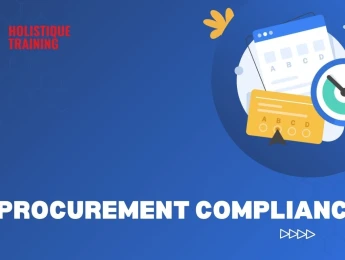Supply Chain Management (SCM) is essential in any business to ensure you have a reliable supply of products, equipment, and tools to run your operation effectively. Managing a supply chain requires consideration of many factors to keep your business sustainable into the future and to maintain value and growth.
To develop a sustainable supply chain, you’ll need to consider your budget and future costs against more cost-effective methods and utilise strategic thinking for future forecasting. You will also need to be proactive in discovering new and innovative warehouse management methods and logistics productivity and develop beneficial working relationships with suppliers and employees to guarantee your operations' success.
Managing a supply chain in a warehouse setting also requires considering risks and how to alleviate them. You must create a business continuity plan with expert negotiation skills to ensure your deadlines are met and that your internal and external customers are happy with your service.
Upon completion of this course, participants will be able to:
- Understand the supply chain management workflow process.
- Develop concepts of supply chain management that work in different settings.
- Discuss elements that are required for successful supply chain management in your organisation and create a strategic plan.
- Consider the future of a supply chain and how innovation can create sustainability.
- Develop a valuable supply chain based on sensible cost-benefit analysis.
- Monitor and analyse risk within the supply chain and create a fool-proof business continuity plan (BCP).
- Equip your employees with the principles to move forward and maintain productivity.
- Negotiate mutually beneficial relationships with suppliers.
- Create environmentally friendly methods and processes that will stand the test of time.
This course is designed for anyone involved in long-term supply chain management who is tasked with creating sustainable relationships and maintaining value with cost-effective processes. It would be most beneficial for:
- Warehouse Managers
- Operations Managers
- Directors
- Business Owners
- Warehouse Supervisors
- Project Managers
- Finance Officers
- Planning Managers
- Logistics Professionals
This course combines a range of adult learning styles to aid comprehension and understanding of developing a sustainable warehouse supply chain. Participants will participate in group discussions to identify the pain points of warehouse management, conduct role-playing activities to work on effective negotiation and delve into practical exercises to create effective financial models and inventory records to reduce risks.
Day 5 of each course is reserved for a Q&A session, which may occur off-site. For 10-day courses, this also applies to day 10
Section 1: Supply Chain Management in Your Business
- Effective supply chain management.
- Good vs. bad process models.
- Setting your requirements and expectations.
- Challenging social concepts.
- Price vs. value.
- Your supplier and stakeholder matrix.
Section 2: Supply Chain Management Concepts and Techniques
- Strategic thinking with your supply chain.
- Your financial structure and responsibilities.
- Successful sourcing techniques.
- Critical and non-critical concepts.
- Your service level agreements.
Section 3: Sustainable Workflows
- Your goals for the future of your supply chain and growth.
- Cross-functional collaboration.
- Promoting areas of sustainability.
- Your employee management.
- Monitoring your scorecards.
- Stakeholder analysis and buy-in.
Section 4: Major Elements and Processes within a Supply Chain
- Management of KPIs and dealing with underperformance.
- Financial justification for change.
- Identifying opportunities.
- Partnerships structures.
- Warehouse journey mapping for productivity.
Section 5: Supply Chains & the Environment
- Supplier evaluation against environmental change.
- Generating environmentally friendly processes that look to the future.
- Your corporate social responsibility.
- Using local suppliers to benefit local businesses.
- Ethical supplier sourcing.
- Sustainable costing models.
- The 3 tiers of sustainability processing.
Section 6: Material Requirements Planning (MRP)
- Interpreting your buyer's needs.
- Risk identification and mitigation.
- Business continuity plans against material planning.
- Supply chain risk management.
- ISO 20400.
- Implications of disasters and recovery mechanisms.
Section 7: Purchasing, Production & Negotiation
- Supplier value and offers.
- Managing customer expectations.
- Understanding supplier needs.
- Effective negotiation techniques.
- Maintaining effective supplier relationships.
- Ending partner relationships amicably.
- Cost drivers and savings.
Section 8: Capacity & Inventory Management
- Coping with resource depletion and replenishment.
- Effective capacity management and how to make the most of your space.
- Key principles of inventory management.
- Strategic thinking for industry returns.
- Maximising your cash flow lifecycle.
- Inventory action planning.
Upon successful completion of this training course, delegates will be awarded a Holistique Training Certificate of Completion. For those who attend and complete the online training course, a Holistique Training e-Certificate will be provided.
Holistique Training Certificates are accredited by the British Assessment Council (BAC) and The CPD Certification Service (CPD), and are certified under ISO 9001, ISO 21001, and ISO 29993 standards.
CPD credits for this course are granted by our Certificates and will be reflected on the Holistique Training Certificate of Completion. In accordance with the standards of The CPD Certification Service, one CPD credit is awarded per hour of course attendance. A maximum of 50 CPD credits can be claimed for any single course we currently offer.
Categories
Procurement, Warehouse, Logistics & Supply Chain,- Course Code PO1-108
- Course Format Classroom, Online,
- Duration 5 days














